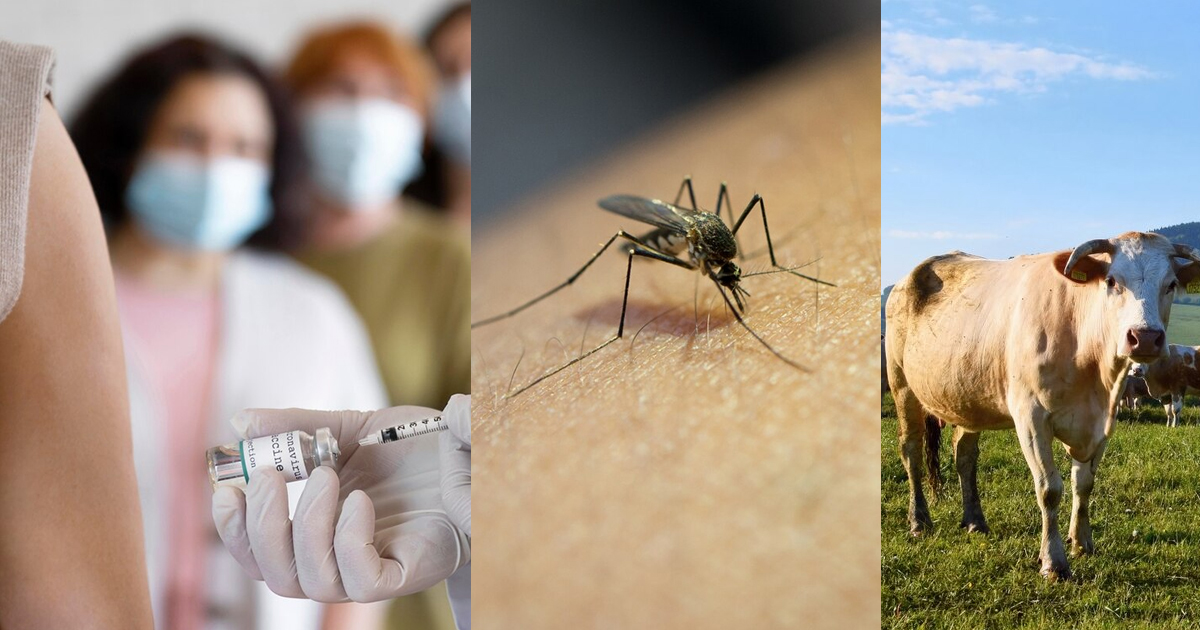Advancing One Health Approaches for Public Health and Zoonotic Neglected Tropical Diseases Control in Latin America and the Caribbean
A special issue of Tropical Medicine and Infectious Disease (ISSN 2414-6366). This special issue belongs to the section "One Health".
Deadline for manuscript submissions: closed (30 September 2025) | Viewed by 3051

Special Issue Editors
Interests: zoonoses; gender equity; One Health implementation; rabies; Latinoamerica
Interests: zoonoses; veterinary public health; One Health implementation; rabies; Latin America; food safety; governance
Special Issue Information
Dear Colleagues,
We are pleased to invite you to contribute to this Special Issue of Tropical Medicine and Infectious Disease dedicated to exploring recent advancements in the study of zoonotic neglected diseases and vector-borne diseases within the One Health framework in the Latin-American and Caribbean context. This Special Issue aims to consolidate cutting-edge research at the human–animal–ecosystem interface, and perspectives on diseases that profoundly impact human, animal, and environmental health
Zoonotic diseases (infections or diseases that are transmissible between animals and humans) and vector-borne diseases (transmitted by arthropods such as mosquitoes and ticks), continue to pose significant global health and economic challenges, especially in countries with higher social inequality, social conflicts, environmental instability together and abundant biodiversity such as Latin America and the Caribbean Region. In this Special Issue, we are interested in studies, examples, and cases focused on by the One Health approach, as understanding the complex interplay between humans, animals, and ecosystems is crucial for effective disease prevention, surveillance, and control.
The topics of interest include, but are not limited to, the following:
- Epidemiology and surveillance of zoonotic neglected and vector-borne diseases;
- Molecular biology and pathogenesis of emerging zoonoses;
- Impact of climate change and environmental factors on disease transmission dynamics;
- Socio-economic impacts and public health responses;
- Innovations in diagnostics, vaccines and therapeutics;
- Case studies and lessons learned from field (disease outbreaks, good practices, evaluations, etc.).
We encourage submissions from researchers, clinicians, epidemiologists, veterinarians, public health experts, and policymakers. Manuscripts may include original research articles, reviews, perspectives, and brief communications.
Dr. Natalia Cediel-Becerra
Dr. Marco Vigilato
Dr. Ximena Collao
Guest Editors
Manuscript Submission Information
Manuscripts should be submitted online at www.mdpi.com by registering and logging in to this website. Once you are registered, click here to go to the submission form. Manuscripts can be submitted until the deadline. All submissions that pass pre-check are peer-reviewed. Accepted papers will be published continuously in the journal (as soon as accepted) and will be listed together on the special issue website. Research articles, review articles as well as short communications are invited. For planned papers, a title and short abstract (about 250 words) can be sent to the Editorial Office for assessment.
Submitted manuscripts should not have been published previously, nor be under consideration for publication elsewhere (except conference proceedings papers). All manuscripts are thoroughly refereed through a single-blind peer-review process. A guide for authors and other relevant information for submission of manuscripts is available on the Instructions for Authors page. Tropical Medicine and Infectious Disease is an international peer-reviewed open access monthly journal published by MDPI.
Please visit the Instructions for Authors page before submitting a manuscript. The Article Processing Charge (APC) for publication in this open access journal is 2700 CHF (Swiss Francs). Submitted papers should be well formatted and use good English. Authors may use MDPI's English editing service prior to publication or during author revisions.
Keywords
- zoonotic neglected diseases
- vector-borne diseases
- One Health
- human–animal–ecosystem interface
Benefits of Publishing in a Special Issue
- Ease of navigation: Grouping papers by topic helps scholars navigate broad scope journals more efficiently.
- Greater discoverability: Special Issues support the reach and impact of scientific research. Articles in Special Issues are more discoverable and cited more frequently.
- Expansion of research network: Special Issues facilitate connections among authors, fostering scientific collaborations.
- External promotion: Articles in Special Issues are often promoted through the journal's social media, increasing their visibility.
- Reprint: MDPI Books provides the opportunity to republish successful Special Issues in book format, both online and in print.
Further information on MDPI's Special Issue policies can be found here.








